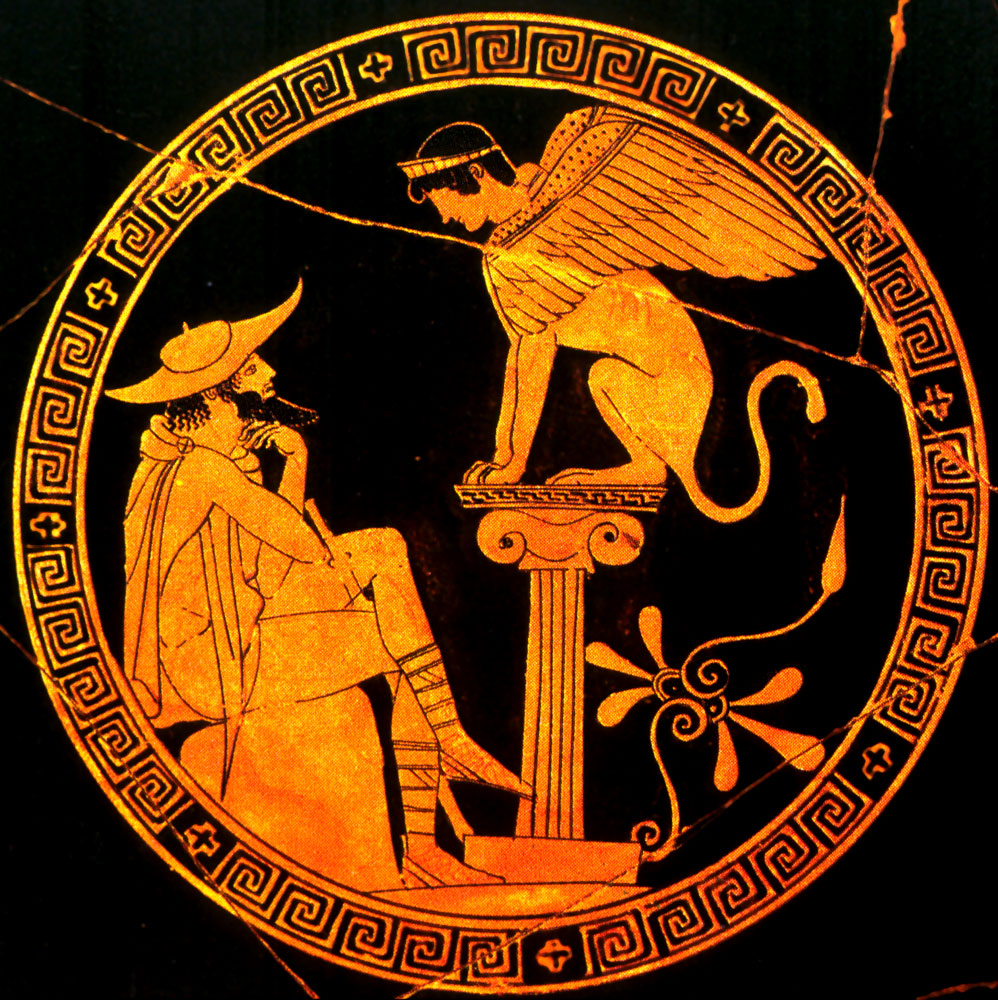| Since Freud tried to address topics unconscious
to ourselves, and even more: topics, that we can't support to be conscious
of; we shouldn't be surprised if we feel inclined to dismiss them as exaggerated,
inappropriate, and even of bad taste. In fact, we can't avoid in doing so,
since that's the reason why these thoughts had been exiled from our consciousness
to the deeper layers of our mind. |
| Nevertheless, it appears worthwhile to
subject, after roughly 100 years, some of Freud's ideas to careful scrutiny.
It is striking that, in Freud's thinking, everything is related to sexuality.
Feelings of this category are among the most dominant ones in adults;
in children, however, after decades of research (see my earlier
essay) we should know better. I have my serious doubts that any child,
before an age of 9 or 10 years, is in the psycho-endocrinological position
to develop a serious sexual urge or drive, not to mention explicit erotic
attitudes towards its mother or father. |
| However, erotic attitudes of children
towards their parents are at the center of Freud's theories. In Freud's
thinking, boys fall in love with their mothers and feel aggression against
their fathers as rivals ('Ödipus-Komplex'), whereas girls feel desperate
once they discover that males posses what they don't ('Penis-Neid'). In
later decades, Freudian theory ran into some trouble because of this evident
asymmetry, attracting the reproach of being too male-oriented. As a reaction, in analogy to boys, an
'Elektra-Komplex' was postulated for girls. |
| If we look at the first years of life
with more modesty, we surely will come to the conclusion that every infant
has wishes and desires and physical and emotional needs, in connection
with its body and with its closest relative (usually its mother). But there
is no use in categorizing these feelings as sexual or erotic. Each infant
is capable of rewarding physical experiences, and needs these experiences
for a prosperous development. It has a natural drive to maximize
these rewarding experiences, and will spontaneously protest if this drive
is not appropriately satisfied. |
| It has been speculated that the advent
of bipedalism and the loss of fur in hominids prompted an important change
in mother / infant relationship (see my essay
on an article by Dean Falk). Whereas before these developments mothers
used to carry around their infants
24 hours a day (like chimps still do), human mothers had to accustom their
infants early to part-time seperations. Why shouldn't we see this necessity
as a potential source of distress (and reason for protest) of human babies?
We don't need the implausible concept of a love-in-vain situation. Of
course, children suffer from jealousy. I will never forget my 16 month
old daughter falling crying to the ground when she saw her mother in my
arms. But she did this without any reference to gender. |
| Children have needs and desires, and
these needs and desires cannot always be satisfied immediately. In addition,
the behavior of children is constantly approved or disapproved by adult
relatives. In that respect, humans seem to be unique among primates (Castro
& Toro 2004). Thus, there are plenty opportunities for early frustration
in human life, many of them will be impossible to avoid. As Freud knew,
the upbringing of children can fail, and sometimes it can be helpful for
the adult suffering from neurotic symptoms to mentally return into the original
situation where the failure occurred. And sometimes, this failure may have
been associated with sexual abuse. But then, sexual activity was exhibited
by the abusing adult only, not by the child. The child, without the necessary
psycho- endocrinological equipment, had no chance to understand what happened,
experiencing the behavior of the adult (often a close relative) as unpredictable
and frightening (Freyd et al. 2005). |
| Helping neurotic patients is one thing;
explaining culture another. Whereas early traumatic events may result
in neurotic disturbances, the normal reaction of infants to unavoidable
frustrations should get along without obscure reference to Greek mythology. |
4/05 < MB (4/05) > 4/05
psychoanalysis
|

